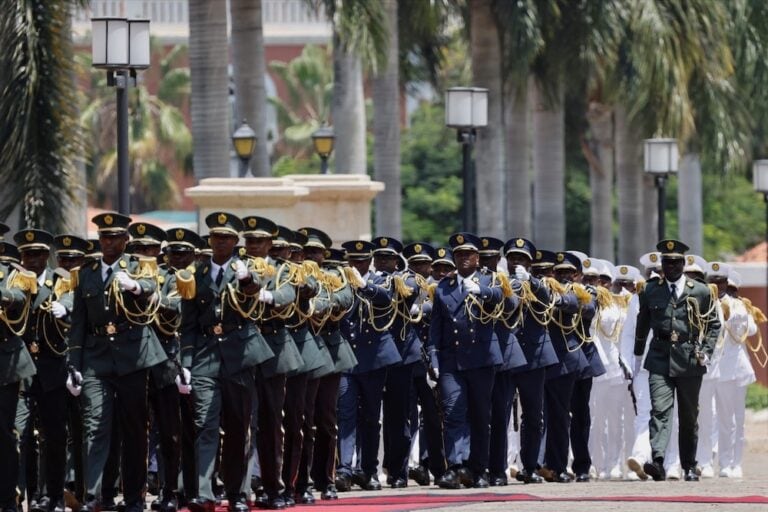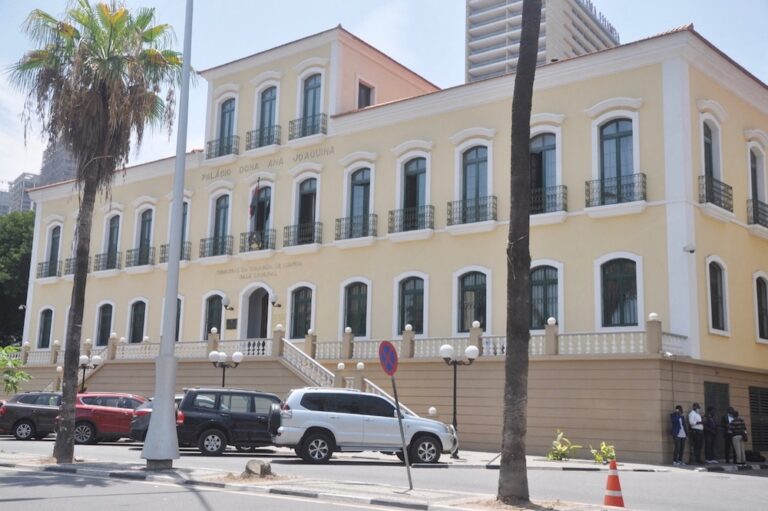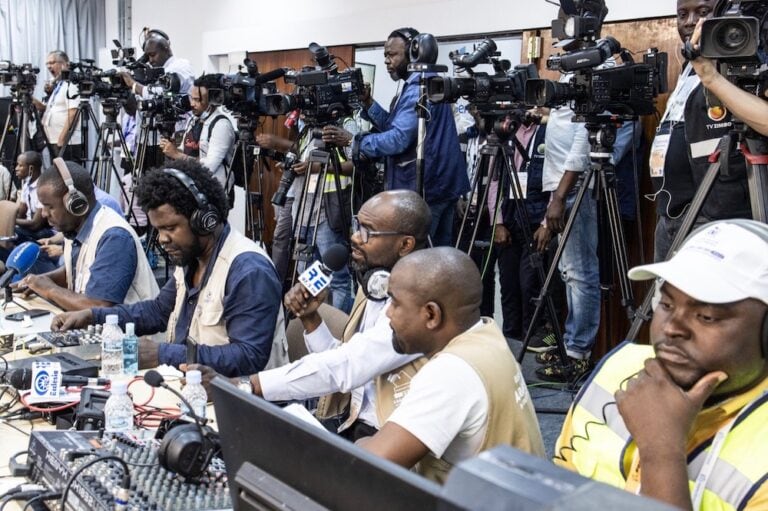Journalists Daniel Fernandes and Romão De Jesus, who were reporting on the demolition of homes in Luanda, lose their equipment after being assaulted by military and police officers.
This statement was originally published on cpj.org on 3 May 2022.
On April 13, 2022, military and police officers in the Angolan capital of Luanda prevented reporters Daniel Fernandes and Romão De Jesus from reporting on the demolition of homes to make way for a new airport in the city, according to media reports and both journalists, who spoke to CPJ by phone and message app.
The officers insulted and shoved Fernandes, a reporter with Radio Despertar, a broadcaster owned by the National Union for the Total Independence of Angola opposition party, and De Jesus, a reporter for the privately owned Radio MFM, according to those sources.
Authorities beat De Jesus with a baton on his back and grabbed Fernandes by his shirt collar and pushed him around, the journalists said.
Fernandes said he wanted to interview people affected by the evictions and demolitions for his weekly radio program, “Repórter da Minha Banda” (Reporter of My Area/Angola)
“When we arrived, the bulldozers were already destroying houses, and we started collecting testimonies from residents. After 10 minutes, we were surrounded by angry military officers, insulting us, yelling that we should not be there, demanding our recording equipment, intimidating us, being very aggressive,” the journalist told CPJ.
One of the officers snatched Fernandes’ recorder from his hands, saying they had orders from their superiors to clear the area of everyone, including reporters, the journalist told CPJ. The recorder was only returned days later, following the intervention of the radio station administrator, who used his contacts in the military command to get it back, Fernandes said.
“The residents were trying to tell the officers we were just journalists working, but they ignored it and kept insulting us, saying that no one had authorization to be on-site. Being surrounded by angry military men was a scary experience, we had to run out of there,” Fernandes said.
De Jesus told CPJ that more than a dozen police and military officers approached him and Fernandes at the scene.
“We were not wearing vests, but my microphone has the logo of MFM radio, and they saw us collecting statements from people,” De Jesus said, adding that he dropped both his microphone and cellphone while trying to escape a military officer who was hitting him on his back with a baton.
“We had to flee. I went back the next day and was able to find my mic with one of the residents at the site, but they told me my phone had been taken by one of the officers that was intent on getting to the images I had collected,” De Jesus said, adding that no one had returned his phone to him as of May 3.
National police spokesperson Engrácia Costa told CPJ in a phone call that she was not aware of the incident and was not able to comment, but added that all media organizations in Angola enjoy a good relationship with the police.
Colonel Adriano Lopes of the Angolan Military Command told CPJ over a phone call on May 3 that he could not comment at this time.
Last year, another journalist from Radio Despertar, Jorge Manuel, was detained for five days for covering anti-eviction protests in Luanda, as CPJ reported at the time.



